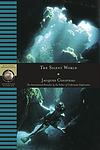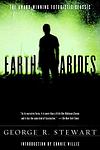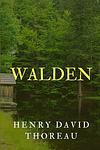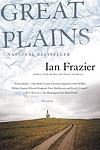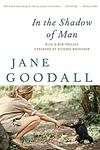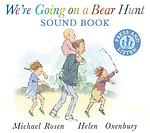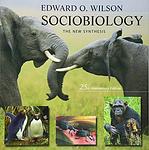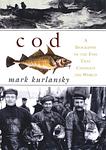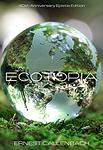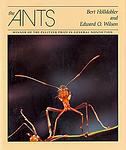The Greatest "Nature & Environment" Books of All Time
Click to learn how this list is calculated.
This list represents a comprehensive and trusted collection of the greatest books. Developed through a specialized algorithm, it brings together 300 'best of' book lists to form a definitive guide to the world's most acclaimed books. For those interested in how these books are chosen, additional details can be found on the rankings page.
Genres
The "Nature & Environment" category encompasses a broad range of books that delve into the intricacies of the natural world and the complex relationship between humans and their environment. Titles within this genre may explore topics such as wildlife, ecosystems, conservation efforts, climate change, and sustainability. They can include scientific texts that provide in-depth analysis of environmental processes, as well as more narrative-driven works that aim to inspire appreciation and stewardship of nature through personal anecdotes, stunning photography, and explorations of the beauty and diversity of the Earth's flora and fauna. This category is designed for readers who are curious about the planet's natural wonders, concerned about environmental issues, and interested in learning about ways to protect and preserve the world for future generations. Whether through practical guides on living more sustainably or through compelling stories of outdoor adventure, books in the "Nature & Environment" genre aim to educate, inform, and sometimes mobilize readers to engage with the natural world around them.
Countries
Date Range
Reading Statistics
Click the button below to see how many of these books you've read!
Download
If you're interested in downloading this list as a CSV file for use in a spreadsheet application, you can easily do so by clicking the button below. Please note that to ensure a manageable file size and faster download, the CSV will include details for only the first 500 books.
Download-
26. The Silent World by Jacques Cousteau
"The Silent World" is an autobiographical account of a pioneering oceanographer and his team's underwater explorations. The book documents their adventures and discoveries, including the development and use of the first scuba diving equipment. The author shares his experiences of exploring shipwrecks, interacting with various marine life, and the dangers they faced in the depths of the ocean. The book also emphasizes the importance of marine conservation and the need to protect our oceans.
-
27. Earth Abides by George Rippey Stewart
"Earth Abides" is a post-apocalyptic novel that follows the story of a geography student who returns from a solo trip in the mountains to find that most of humanity has been wiped out by a deadly plague. As one of the few survivors, he navigates through the deserted world, eventually forming a small community with other survivors. The novel explores themes of survival, the fragility of civilization, and the importance of community in the face of adversity.
-
28. Essays of Henry David Thoreau by Henry David Thoreau
This collection of essays presents the profound reflections of a renowned philosopher and naturalist on a variety of subjects, including nature, self-reliance, civil disobedience, and transcendentalism. The author's eloquent prose and deep insights into human existence and the natural world continue to inspire readers, offering a timeless perspective on living a meaningful, deliberate life. His views on individualism and nonconformist thought have had a significant impact on both personal and political spheres.
-
29. Journals by Meriwether Lewis, William Clark
This book is a compilation of the detailed journals kept by two explorers during their expedition across the American West, from 1804 to 1806. The journals provide a first-hand account of their encounters with Native American tribes, their observations of new plant and animal species, and the challenges they faced while traversing uncharted territories. The explorers' writings not only offer insights into their historic journey but also serve as a valuable resource for understanding early 19th-century American history and the country's westward expansion.
-
30. Arctic Dreams by Barry Lopez
"Arctic Dreams" is a comprehensive exploration of the Arctic region, its landscapes, wildlife, and indigenous cultures. The author combines his personal experiences from his time spent in the Arctic with historical, scientific, and anthropological insights, providing readers with a profound understanding of this remote and often misunderstood region. The book also discusses the impact of climate change on the Arctic and its implications for the rest of the world.
-
31. King Solomon's Ring by Konrad Lorenz
This book is a fascinating exploration of animal behavior by a renowned zoologist. It delves into the author's personal experiences and observations of animals in their natural habitats, focusing particularly on birds, dogs, and jackdaws. The author uses these observations to draw conclusions about animal psychology and behavior, often comparing it to human behavior. The book is named after the biblical King Solomon, who was said to have a ring that allowed him to understand the language of animals.
-
32. Raise High the Roof Beam, Carpenters: And, Seymour, an Introduction by J. D. Salinger
The book is a collection of two novellas, both narrated by Buddy Glass, a character who also appears in other works by the same author. The first story, "Raise High the Roof Beam, Carpenters," is set during World War II and focuses on the wedding day of Buddy's older brother Seymour, who fails to show up. The second story, "Seymour, an Introduction," is Buddy's homage to his brother, exploring his character, their relationship, and Seymour's influence on Buddy's life and writing. The book delves into themes of spirituality, family dynamics, and the nature of art and artists.
-
33. The Unsettling of America by Wendell Berry
This book is a profound critique of modern industrial agriculture, arguing that it degrades the land and disconnects people from their food sources. The author advocates for a return to more traditional, sustainable farming methods, which he believes will lead to healthier communities and a more balanced relationship with the environment. He also explores the broader cultural implications of this shift, including the potential for greater self-reliance and a deeper sense of connection to the natural world.
-
34. Great Plains by Ian Frazier
"Great Plains" is a travelogue that takes readers on a journey through the vast expanse of the American Great Plains, exploring its history, geography, and culture. The author travels from North Dakota to Texas, delving into the history of Native Americans, pioneers, and outlaws. The book provides a detailed account of the region, its people, and its significance in shaping the American West, offering a vivid portrait of the landscape and its influence on the country's identity.
-
35. In the Shadow of Man by Jane Goodall
This book provides a fascinating and detailed account of the author's groundbreaking research on wild chimpanzees in Africa. The author offers insights into the complex social structure, behavior, and personalities of these primates, challenging the then-prevailing scientific belief that only humans were capable of having personalities and emotions. Through her studies, the author revolutionized our understanding of our closest relatives in the animal kingdom, and she also discusses the threats to their survival and the many challenges they face due to human activities.
-
36. The Perfect Storm by Sebastian Junger
This non-fiction book narrates the story of the Andrea Gail, a commercial fishing vessel that was lost at sea during the "Perfect Storm" of 1991. The author combines meteorological science, history, and personal accounts to paint a vivid picture of the harrowing ordeal faced by these six fishermen. The book also explores the dangerous profession of deep-sea fishing and the tight-knit communities that are affected by such tragedies.
-
37. In the Heart of the Sea by Nathaniel Philbrick
This historical narrative tells the true story of the 19th-century whaleship Essex, which was rammed and sunk by a sperm whale in the South Pacific. Stranded thousands of miles from land, the crew of the Essex was pushed to their limits and forced to do the unthinkable to stay alive. The tale explores the harrowing ordeal of these men through their long journey at sea, their encounters with nature's fury, hunger, disease, and their own fear and despair.
-
38. We're Going on a Bear Hunt by Michael Rosen
This children's book is a captivating adventure story about a family that embarks on a playful and imaginative bear hunt. They overcome a series of obstacles along the way, such as long, wavy grass, a deep, cold river, and a swirling, whirling snowstorm. The family's hunt ends when they come face to face with an actual bear and have to rush back home. The narrative is filled with fun repetitive phrases and sound effects, making it an engaging read for young children.
-
39. Sociobiology by E. O. Wilson
"Sociobiology" is a comprehensive and scholarly work that explores the biological basis of social behavior in all species, including humans. The author weaves together findings from various fields such as ethology, anthropology, evolution, and genetics to propose a new discipline - sociobiology. He suggests that social behavior, including altruism, aggression, and nurturance, is not just a product of learning and environment, but also has a genetic basis. This work sparked considerable debate and controversy, particularly regarding its implications for human behavior and society.
-
40. The Solace of Open Spaces by Gretel Ehrlich
This book is a collection of essays that explore the author's experiences and observations after moving from the city to the rural landscapes of Wyoming. The narrative delves into the harsh and beautiful realities of living in the American West, the author's personal healing after a tragic loss, and the solace found in the vast open spaces. The book is a profound meditation on nature, solitude, grief, resilience, and the transformative power of landscape.
-
41. Cod: A Biography of the Fish that Changed the World by Mark Kurlansky
This book is a fascinating exploration of the historical, cultural, economic, and ecological impact of the codfish. It traces the role of this fish in shaping economies, sparking wars, and influencing culinary trends across centuries and continents. The book also delves into the devastating effects of overfishing and the current struggle to sustain cod populations. The narrative combines history, science, and gastronomy to present a comprehensive biography of this significant fish species.
-
42. The Sheep Look Up by John Brunner
"The Sheep Look Up" is a dystopian science fiction novel that presents a grim and polluted future where environmental degradation and overpopulation have reached catastrophic levels. The story follows various characters as they navigate a world plagued by toxic pollution, food shortages, and rampant disease outbreaks. With a sharp critique of corporate greed and government negligence, the novel explores the consequences of humanity's disregard for the environment and the urgent need for change.
-
43. The Swarm by Frank Schatzing
"The Swarm" is a science fiction novel that explores the disastrous consequences of mankind's exploitation of the world's oceans. The narrative follows a group of scientists around the world as they try to understand a series of inexplicable, catastrophic natural disasters. They eventually discover that these events are not random but are the result of a collective intelligence in the sea, a swarm of marine life that has decided to fight back against humanity's destruction of their habitat. The book combines elements of ecological thriller, disaster novel, and speculative fiction as it explores the potential consequences of human interference with the natural world.
-
44. The Overstory by Richard Powers
The Overstory is a sweeping, impassioned work of activism and resistance that is also a stunning evocation of the natural world. The novel tells the intertwined tales of nine different people who are drawn into the last standing few acres of virgin forest in North America. From a young artist who inherits a hundred years of photographic portraits, all of the same doomed American chestnut, to a hard-partying undergraduate in the late 1980s electrocuted by a streetlight, each character's story adds another layer of depth to the narrative. Their lives slowly merge with each other and the fate of the trees, showing the interconnectedness of life, human and otherwise.
-
45. Natural History by Pliny (the Elder)
"Natural History" is an extensive work of literature that provides a comprehensive look at the knowledge of the natural world during the Roman era. The book is divided into 37 volumes, each focusing on different aspects such as geography, anthropology, zoology, botany, and mineralogy. The author's curiosity and fascination with the world are evident in his detailed observations and descriptions. The book also includes discussions on art, sculpture, and various other topics, providing a rich and detailed snapshot of the Roman understanding of the world.
-
46. The Conservationist by Nadine Gordimer
The book is a character-driven novel set in South Africa during the apartheid era. The protagonist is a wealthy, white industrialist who buys a farm with the intention of using it as a weekend retreat. However, the farm proves to be unprofitable and difficult to manage, and the protagonist's life becomes intertwined with the lives of the black people who live and work on the land. The narrative explores themes of ownership, identity, and the struggle for meaning in a racially divided society.
-
47. The Life of the Bee by Maurice Maeterlinck
"The Life of the Bee" is a philosophical and scientific examination of the behavior and nature of bees. The author delves into the intricate world of the hive, exploring the roles and duties of the worker bees, drones, and queen bee, and the complex societal structure within the hive. The book also discusses the fascinating process of honey production and the life cycle of bees. The author uses the bee society as a metaphor for human society, drawing parallels between the two.
-
48. Ecotopia by Ernest Callenbach
The book is a utopian novel that takes place in a fictional country located in the western part of the United States, which seceded from the rest of the country due to differing ecological policies. The society in this country is highly sustainable, with its citizens living in harmony with nature, practicing recycling and renewable energy use, and promoting gender equality. The story is told through the eyes of a skeptical American reporter who gradually comes to appreciate this alternative way of life.
-
49. A Short History Of Nearly Everything by Bill Bryson
This book is a comprehensive exploration of scientific knowledge, covering a wide range of topics from the Big Bang to the rise of civilization. The author aims to understand how we got from nothing at all to where we are now, exploring subjects such as geology, chemistry, paleontology, astronomy, and particle physics. The book also delves into the lives of the scientists behind the discoveries, making the complex concepts accessible to the average reader.
-
50. The Ants by E. O. Wilson, Bert Hölldobler
"The Ants" is a comprehensive exploration of the biology, evolution, and behavior of ants. The book covers a wide range of topics, including the ants' origin and classification, their morphology and physiology, their communication and social organization, and their ecology. It also delves into the complex societies and intricate behaviors of these creatures, providing a detailed insight into their world. The authors use a combination of narrative and scientific explanations to make the subject accessible to both general readers and specialists.
Reading Statistics
Click the button below to see how many of these books you've read!
Download
If you're interested in downloading this list as a CSV file for use in a spreadsheet application, you can easily do so by clicking the button below. Please note that to ensure a manageable file size and faster download, the CSV will include details for only the first 500 books.
Download